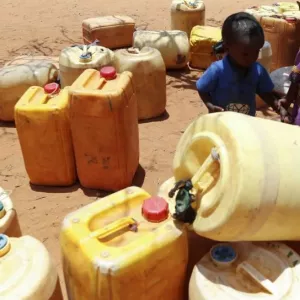Opinion: Why water emergencies are the thorniest end of the climate crisis
Future water security depends on transforming how water systems are managed. More than six months after unprecedented floods left a third of Pakistan under water, millions are still feeling the humanitarian aftershocks. The deluge was an extreme manifestation of how the planet’s water cycle is becoming increasingly unpredictable because of climate change. Growing water risks are reinforcing the notion of a global water

Opinion: Why water emergencies are the thorniest end of the climate crisis
Future water security depends on transforming how water systems are managed.
More than six months after unprecedented floods left a third of Pakistan under water, millions are still feeling the humanitarian aftershocks.
The deluge was an extreme manifestation of how the planet’s water cycle is becoming increasingly unpredictable because of climate change. Growing water risks are reinforcing the notion of a global water crisis.
The post Context: Why water emergencies are the thorniest end of the climate crisis first appeared on International Water Management Institute (IWMI).

